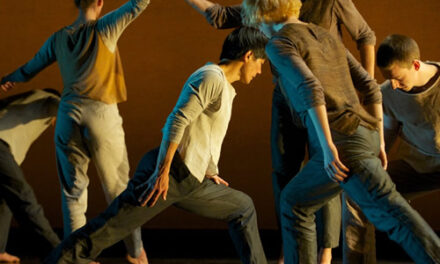I’ve been a big fan of Jon Manasse‘s clarinet playing ever since I heard him perform live in Greensboro several years ago. So, I was looking forward to hearing him again, playing with the Eastern Music Festival faculty in a chamber music concert Monday night. I was not disappointed.
Manasse was featured in the Brahms Clarinet Sonata No. 2 in E-flat, Op. 120, No. 2 (1894) and Weber’s Clarinet Quintet in B-flat, Op. 34 (1811-15). These two pieces were the bookends around the curious and innovative Ravel Sonata for Violin and Cello written 1920-22 and dedicated to his compatriot Claude Debussy, who had died in 1918.
Johannes Brahms (1833-1897) had retired from composition when he heard the clarinetist Richard Mühlfeld play the Weber Clarinet Concerto and Mozart’s Clarinet Quintet in 1891. As a result, he returned to composing, completing the two clarinet sonatas, Op. 120 three years later, and he dedicated them to the performer. The sonatas are considered to be two of the great contributions to the clarinet literature.
From the opening Allegro amabile, Manasse spun out long, sinuous lines, seemingly never to need a breath. Subtle nuances were present in every corner in this amiable movement. The sonata is written for two equal partners, and the clarinetist’s colleague was pianist William Wolfram, who matched Manasse’s mood every step of the way throughout the three-movement work. Much of the Allegro is given over to lyricism, although there are moments of passion, and Wolfram provided plenty of power.
The middle movement, Allegro appassionato, is hearty and contains a lovely chorale section in the middle. The finale is a theme and variations affair that picks up energy providing for a brilliant and joyous conclusion. One would be hard pressed to find a more beautiful and convincing performance than the one Manasse and Wolfram gave Monday night.
The Clarinet Quintet by Weber (1786-1826), like the Brahms sonatas, was written for a specific clarinetist friend, in this case, Heinrich Baermann, who played in the court orchestra in Munich, Germany. And while the Brahms Sonata mostly eschews virtuosity, the Weber embraces it. The opening movement, after a short, slow introduction, is a good-natured thing that features both expressive playing as well as technical displays.
Providing good intonation and ensemble were Jenny Grégoire and Corine Brouwer (violins), Benjamin Geller (viola), and Marta Simidtchieva (cello). Although there are moments when one or more of the string players get the spotlight (like the nice exchange between clarinet and cello in the first movement), most of the piece sounds much like a concerto, with the clarinet front and center.
The slow second movement allowed more gorgeous playing from Manasse, while the Menuetto (so fast, it really should be labelled Scherzo) was brimming with fancy footwork and good humor among all the players. The middle Trio section provides a less hectic contrast.
The main tune in the Rondo, a galloping string figure over which the clarinet flaunts perky ascending lines, returns several times. The virtuoso conclusion allows the “soloist” to shine in a burst of brilliance.
I had been looking forward to hearing the husband/wife team John Fadial (violin) and Beth Vanderborgh (cello) play the Ravel Sonata. However, as Fadial explained, his wife (who is a “horse woman” as well as cellist) had had an accident (“she’s fine,” he said) that prohibited her being able to prepare the work for Monday evening. Julian Schwarz was called in.
Since the Sonata has no harmony instrument, Ravel proclaimed that the music was “stripped down to the bone.” The opening Allegro violin line, tinged with jazz, is picked up quickly by the cello, and so goes the entire four movements, with each instrument sharing material back and forth.
The second fast movement begins as a pizzicato battle between the two while the slow, lyric third explores sorrowful outpourings from both violin and cello. The fast finale was a no-holds-barred romp that featured teasing as well as what sounded like fractured children’s songs. Great fun: superb intonation and energetic playing from both Fadial and Schwarz. Kudos.











